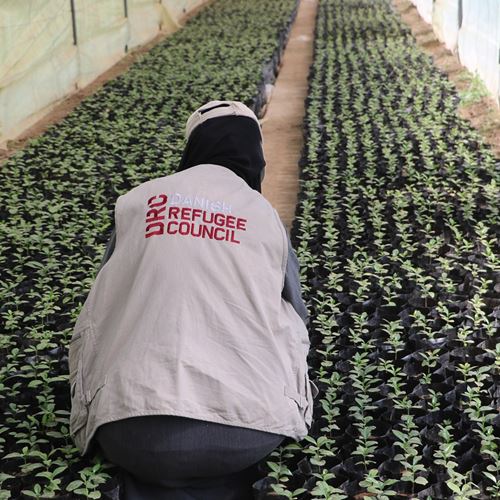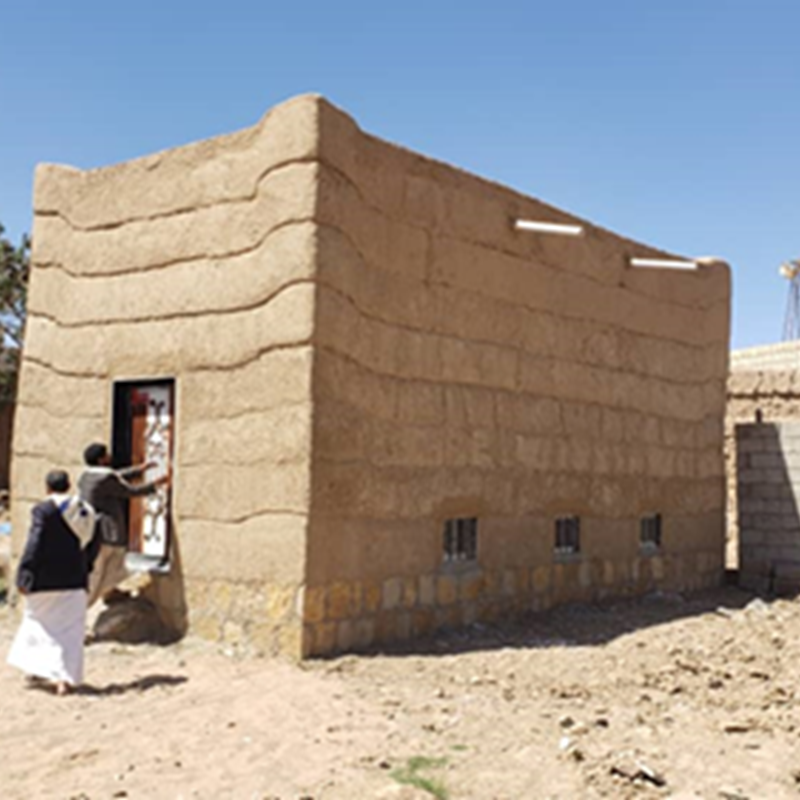Yemeni communities becoming resilient one seed at a time
DRC Yemen has partnered with local farmer communities in the Sa’dah Governorate in the north-west of the country, to collect, preserve, store and multiply traditional seed stock to increase food security. Being an extremely fragile state, Yemenis and displaced people heavily depend on humanitarian aid for food. Reclamation of seed security is key to build resilience, protect livelihoods and, thus, reduce conflict risks.

Seeds are the first element of the food chain, they are integral to agriculture and it is impossible to have food security without seed security. Not all seeds are the same – since the 90s the safety of certain agricultural crops (and thus the safety of certain food groups) has been threatened by manufactured seeds which are inferior in quality, longevity, and purity to those that have been bred naturally over generations of farming.
Many of the seeds available on the market in parts of Yemen grow crops that last only 2 or 3 seasons, creating a system of dependency and instability for farmers. Manufactured seeds are often clones of one type, creating monocultural crops that are extremely susceptible to disease. Furthermore, many of the seeds made available are not native and are not the traditional food crops which tend to be those that are best suited to the particular environment. Getting these crops to yield can require damaging agricultural adaption techniques which take a huge toll on the natural environment and further perpetuate community vulnerabilities.
As a result of this situation, DRC Yemen has partnered with local farmers and communities in the Sa’dah Governorate, in the north west of the country, to collect, preserve, store, and multiply the traditional seed stock and thereby help increase seed and food security. Yemen is an extremely fragile state, with much of the country relying on humanitarian aid for food and other life necessities.
The reclamation of seed security for Yemeni communities is essential to building resilience and for the protection of lives, livelihoods and the reduction of conflict in the country.
The project aims to support seed security through the propagation of discarded seeds, the maintenance of current seeds, saving of seeds from each type of food grain, and training and awareness on the importance of seed preservation. Despite the significant setbacks the programme has experienced due to security issues and access problems, the programme has already achieved a lot.
Two seed bank stores - locations where seeds will be kept and preserved - have been built, with four more under construction in 2020. The project team and community have also collected crucial information about the most important types of grains found in the Sa’dah Governorate, which is being used in the trainings of farmers and community leaders so the knowledge becomes embedded in the community. DRC Yemen has also established four community nurseries which are operating and producing seedlings with more of these nurseries being built.
Additionally, like other DRC country offices, DRC Yemen has set up 60 permagardens with a view to set up 200 more by the end of 2020, helping to increase household food production through simple, inexpensive, and natural gardening techniques that everyone can adopt.
Widespread availability of quality seeds, alongside their preservation and cultivation has the potential to significantly increase crop yield, reduce pest risk (through varied and resilient crop types) and lower the risks of drought and disease pressure as the environment is revitalised through non-harmful, regenerative farming. Through DRC’s seed saving programme, Yemeni communities are becoming more resilient one seed at a time!
Thanks to Fuaad Al-Sayyadi for his invaluable insight and help in the writing of this article.

An example of seed bank in Yemen.